It stings when your child says hurtful things to you, doesn’t it? Hearing “I don’t love you” from your child can be heartbreaking, no matter how old they are. But why do kids say such things, and how should you respond?
As a mom, I’ve felt this pain firsthand. My daughter has told me she doesn’t love me, and let me tell you—it hurts. But instead of just accepting these words, I’ve learned how to turn these difficult moments into learning experiences for both of us. In this article, I’ll share practical steps to help you handle hurtful words from your child and teach them healthier ways to express their emotions.
I struggle with my mother-daughter relationship. Apparently, so does my daughter.
It hurts when my child says she doesn’t love me.
When I first found out I was having a girl, I worried. I’m not a girlie-girl and I didn’t really know what to do with one of those.
Even more so, I had a strained relationship with my own mother for as long as I could remember. Finding out I was having a girl brought up tons of negative memories.
How was I going to raise a daughter when I never felt right about how I was raised?
Well, we do what we must, right?
As my daughter approached the ripe old age of 4, she told me “I don’t love you, I love Daddy.”
I was heart-broken.
I struggle to be a good mom. I try hard to foster her interests and to do things for her, even when I don’t feel like it. Often, I hug her, kiss her, and tell her I love her. She matters to me.
Despite my experiences growing up, I force myself to tell my daughter “I’m sorry” when I realize I’m wrong or have behaved inappropriately.
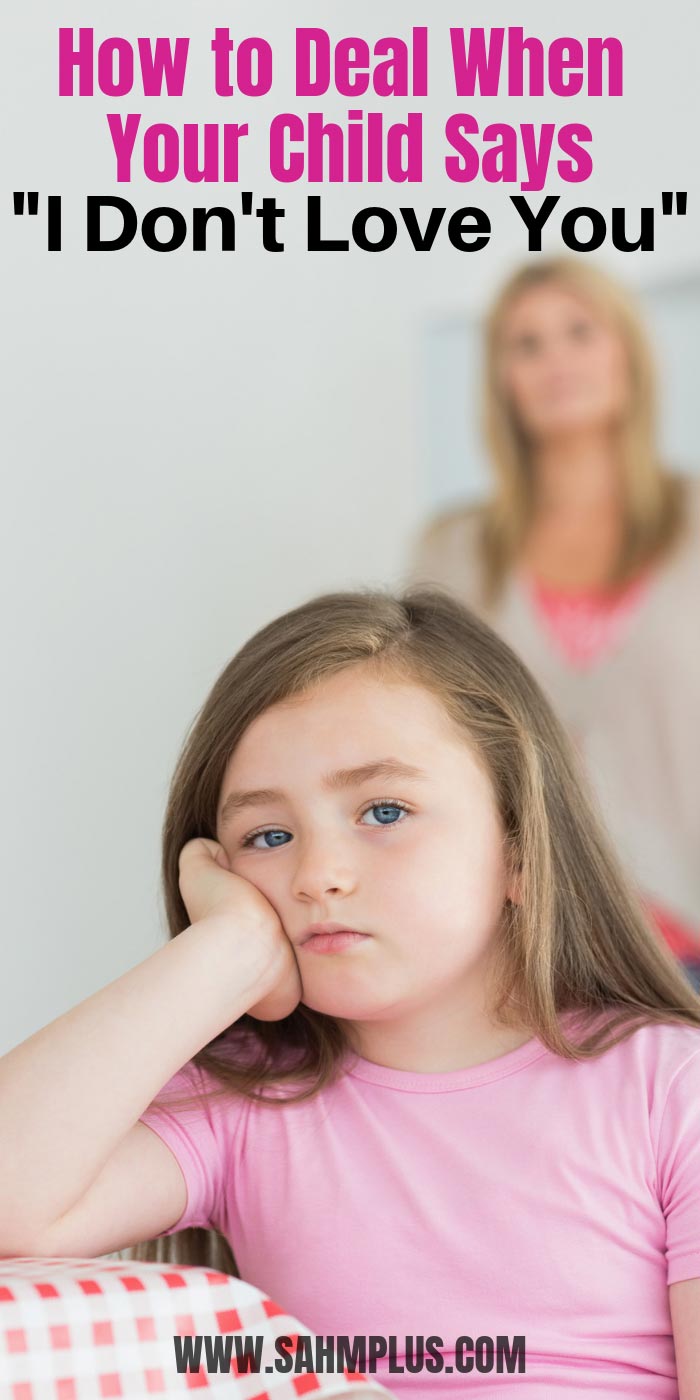
The reward I get is being told that she doesn’t love me.
She runs to her father, giddy when he comes home from work and only argues with him 30% of the time, instead of nearly 90% with me. No, it’s not exact math, but it certainly feels like we’re always at odds.
I came across an article about a letter a young girl wrote her mother. This note clearly stated that she believed her mom was “a terrible Mother.” The article proceeded to explain away the letter and then defend her daughter’s rights to her own opinion. But, that got me thinking about a few things in my own life, being that I’m already struggling with my daughter expressing her opinions about me.
And then, I had to deal with it all again when my toddler son said he doesn’t love me!
Do you just accept when your child says hurtful things to you? I, personally don’t see that as a completely healthy way to handle those words.
Why Do Toddlers Say “I Don’t Love You”?
Toddlers aren’t able to clearly identify their feelings, much less verbalize them appropriately. A toddler will usually say “I don’t like you” in the heat of the moment.
It’s up to you, the parent, to do active listening and help your toddler learn to identify their feelings and deal with them appropriately.
What Do You Do When Your Child Says Hurtful Things To You?
When your child hurts you emotionally, take a deep breath and a step back to avoid escalating the situation. If you react in the heat of the moment, you may regret your words.
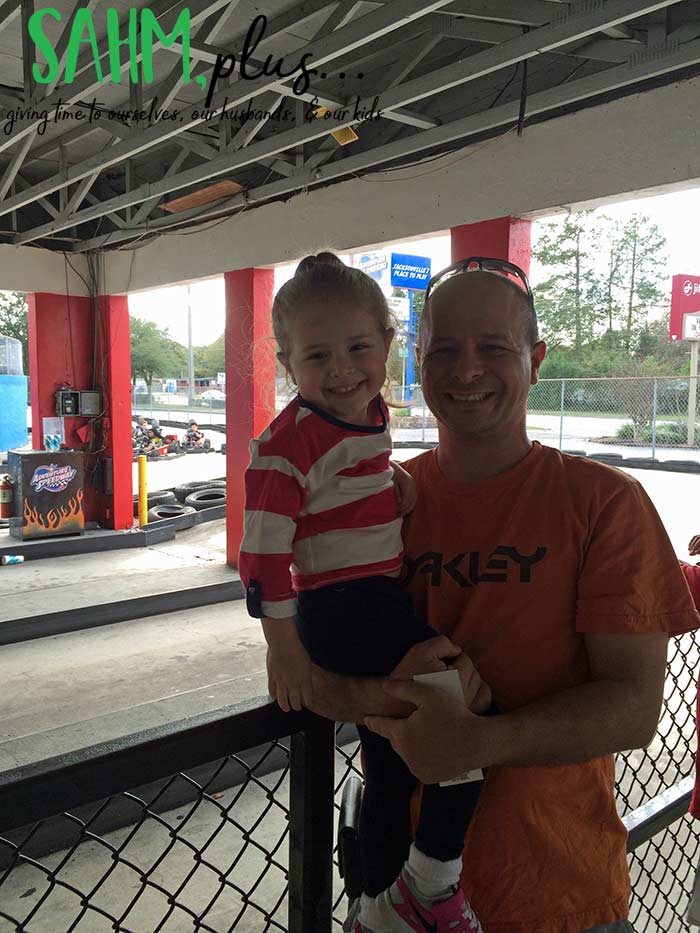
1. Remind Them Not To Hurt Others Feelings
For starters, while I agree that our children have a right to express their opinions and feelings, we should also be teaching them that saying things that are hurtful, really isn’t okay.
It’s okay that my daughter feels, at the moment, that she doesn’t like me much. I remember those days with my own mother. However, it should never be OKAY to say things just to be hurtful. I know my daughter doesn’t really mean she doesn’t love me, but that doesn’t mean I continue to allow her to say those things.
When your child says they don’t love you, after they’ve calmed down, remind them that their words were hurtful. Try to express, in age appropriate terms, that you don’t say these kinds of hurtful things when you’re tired or angry because you know it would hurt their feelings.
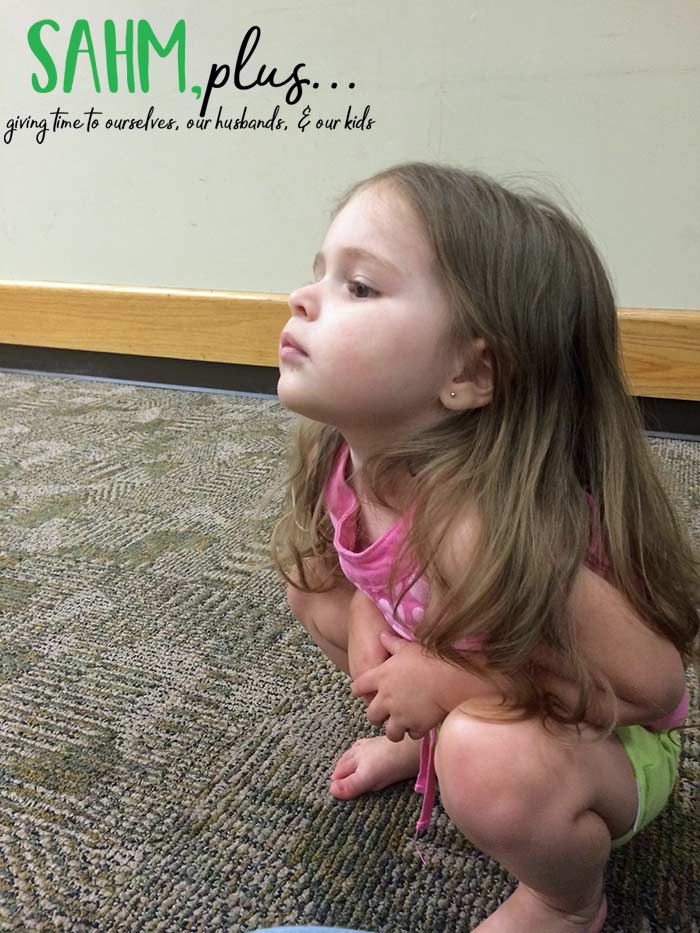
2. Help Your Child Recognize Their Feelings
It’s my job to help her recognize when she’s having those feelings, and what is truly going through her mind.
In a fit, she told me she didn’t love me, but she loved her daddy. I was so hurt.
And then she was bothered by the dog and said she didn’t love Ella anymore.
I just sat there staring at her for a moment, baffled.
I realized, as did she, later on, that she was really tired. Her exhaustion was taking a toll on her emotional bank … she was experiencing some dramatic lows that were making her cranky and unruly.
Later, when she got her second wind, she began telling me and the dog that she loved us. I knew she had acted out because she didn’t know how to react to her true feelings. She was exhausted from a weekend with her grandfather and wasn’t exactly happy to be home.
What I need to remember, is that I should try to remind her of what she’s experiencing in the moment by directing her attention to what is really bothering her.
Teach Alternative Phrases
When your child says hurtful things, they’re struggling to express their emotions in a healthy way. After they’ve calmed down, help them reframe their words by offering alternatives:
Instead of “I don’t love you,” they could say:
✅ “I’m really mad at you right now.”
✅ “I feel frustrated because I wanted to keep playing.”
✅ “I’m upset that I didn’t get my way.”
By giving your child better ways to express their frustration, you’re teaching emotional intelligence while still setting boundaries for respectful communication.
3. Remind Them Not To Say Things In Haste
I need to teach her that expressing her feelings in moments when she is tired or aggravated can come across as hurtful. It’s never okay to hurt someone’s feelings simply because you’re tired or aren’t getting your way. I should always dig a little deeper to understand her emotions, where they are coming from, and try to direct her attention to them so that she can be more aware of her feelings, and those of others.
Hopefully you modeled this by not responding in the moment.
4. Remember That It’s Not Personal
You know your child was either hungry, tired, or frustrated about something outside of their control. Don’t take it personally.
I shouldn’t expect my daughter, at 3, to understand the full scope of her emotions, or the pain words can cause. I don’t expect her to understand the link between her emotional bucket and the words she uses to express herself. But, that doesn’t mean I accept it and not try to make those moments teachable moments.
5. Coping With the Emotional Toll of Hurtful Words
Hearing your child say “I don’t love you” or other harsh words can be painful. Even when we know they don’t mean it, it can trigger feelings of rejection, inadequacy, or old wounds from our own childhoods.
After an emotionally charged moment, give yourself space to process your feelings. Take deep breaths, step away if needed, and remind yourself that your worth as a parent isn’t determined by one difficult moment. Talking to a partner or friend about it can help, too.
I would imagine, by 9, that she can learn to recognize her emotional state and choose her words a bit more carefully. I know that it will take work and conscious direction, and I can’t be certain that I’m right, but I do know that I wouldn’t simply sit by and let my daughter say hurtful things. I deserve more respect than that and I make every effort to give her more respect than that.
I think the mother who was the recipient of that nasty letter from her daughter was sadly mistaken in just accepting the harsh words as feelings. There’s truly no excuse, in my opinion, for some of the harsh words the daughter wrote, and there should be a lesson in dealing with those feelings more positively. One of the lessons being that saying hurtful things that we don’t really mean isn’t expressing our feelings, rather than being destructive in a relationship.
Imagine your child’s friend saying something harsh to him or her in a similar manner. You’re going to expect that child to apologize to repair the relationship, right?
Why wouldn’t you expect the same respect from your own child?
Many parents go through this, and what matters most is how you respond and model emotional regulation for your child.
We shouldn’t allow people, including our children, to say things they don’t mean when they’re angry, upset, or tired. We should expect them to recognize when they are saying things they don’t mean, and apologize when necessary. Understandably, it’s going to be harder to get smaller children to grasp the concept, but start instilling the ideas early on to train them to be more aware of their feelings and cautious of the words they use.
What do you think?
How do you handle it when your child says they don’t love you?
FAQs for When Your Child Says Hurtful Things To You
Why does my child say hurtful things?
Usually children resort to saying awful things out of frustration, anger or when they feel they don’t have control over a situation. Saying hurtful things is a way to express feelings or simply feel in control of something, but most likely isn’t really meant to hurt you.
How do you respond when your child says hurtful things?
Remember not to take their outbursts personally and give your child the time and space to calm down. It’s okay to acknowledge their frustrations, but don’t escalate the situation by saying hurtful things in response.
Should I discipline a child for saying hurtful things?
It depends on the situation. If your child is very young (toddler age), they likely don’t fully understand the impact of their words, so simply acknowledging their feelings and guiding them toward better expression is best.
However, for older children who know better, it’s important to address disrespectful behavior. Instead of harsh punishment, use natural consequences.
🔹 If they say something mean in anger, they should apologize after they calm down.
🔹 If they’re repeatedly being disrespectful, have a conversation about why words matter and set clear expectations.
This approach helps children understand accountability while also learning emotional regulation.
Can you tell your child they hurt your feelings?
Having a discussion about how words can be used to make others feel good or bad is absolutely acceptable. Use examples of things to say that make people feel good as well as things that might hurt others’ feelings. Be sure, however, your child understands that you’re not saying these examples to hurt them.
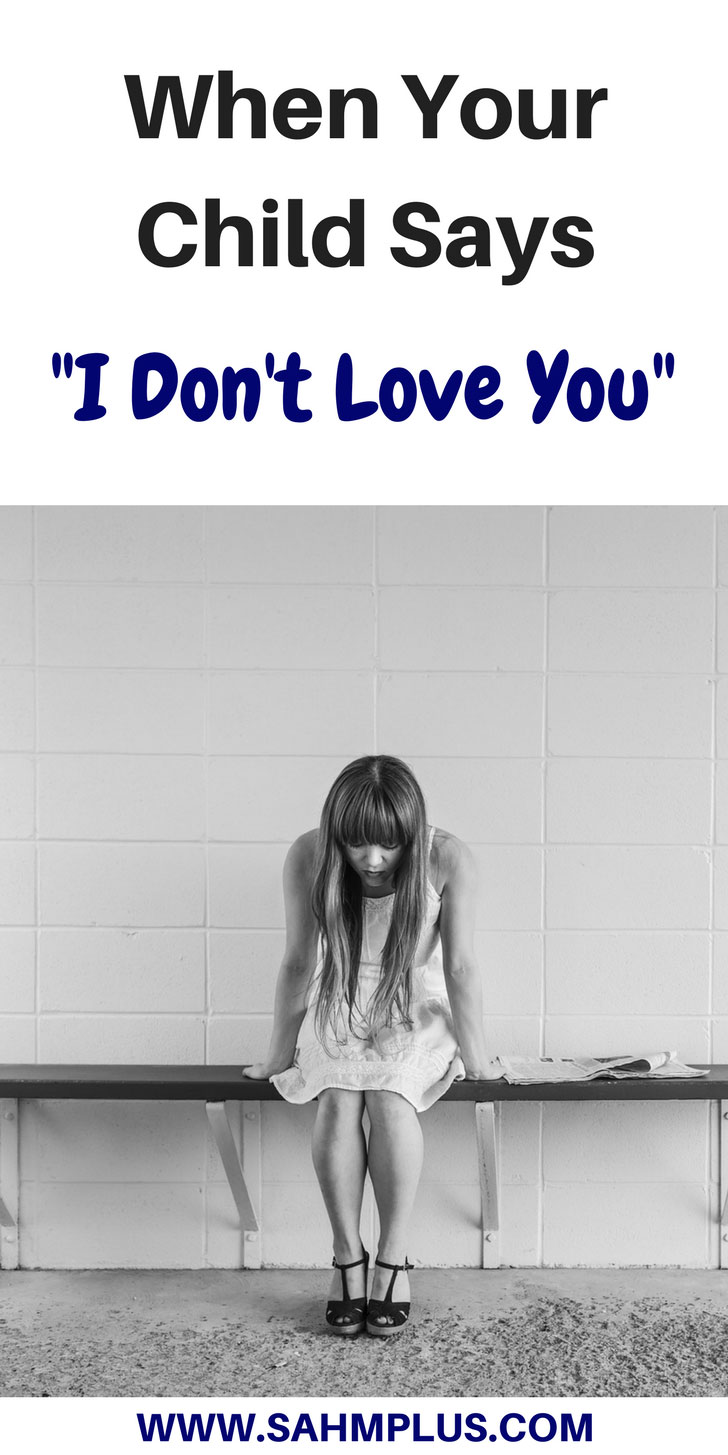
Originally published Jan 26, 2015 and updated on 03/07/23.
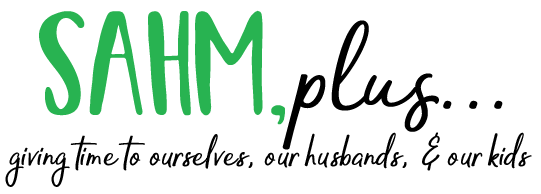
4 comments
I believe you have done the right thing with your daughter, a wise behavior from you to not react to your child with the same hurtful way they’re using and not just sitting and watching the harsh words come out from your kid with no consequences, it’s important for our kids to understand the effects of their actions so they can become more responsible when they are adults.
Thanks for sharing the wise experience
[…] the heat of the moment, I have been told they don’t love me and recently I had the pleasure of hearing my 4 year old say “you don’t love […]
Thank you for writing such an excellent essay. I’m curious whether you plan to write more posts like this one. I’ll be returning to your website frequently!
I think you handled your daughter’s situation well by choosing not to respond to her in the same unpleasant manner that she is and by taking action rather than simply letting her hateful remarks out into the world.
Find an organization that suits your needs and your beliefs
Comments are closed.